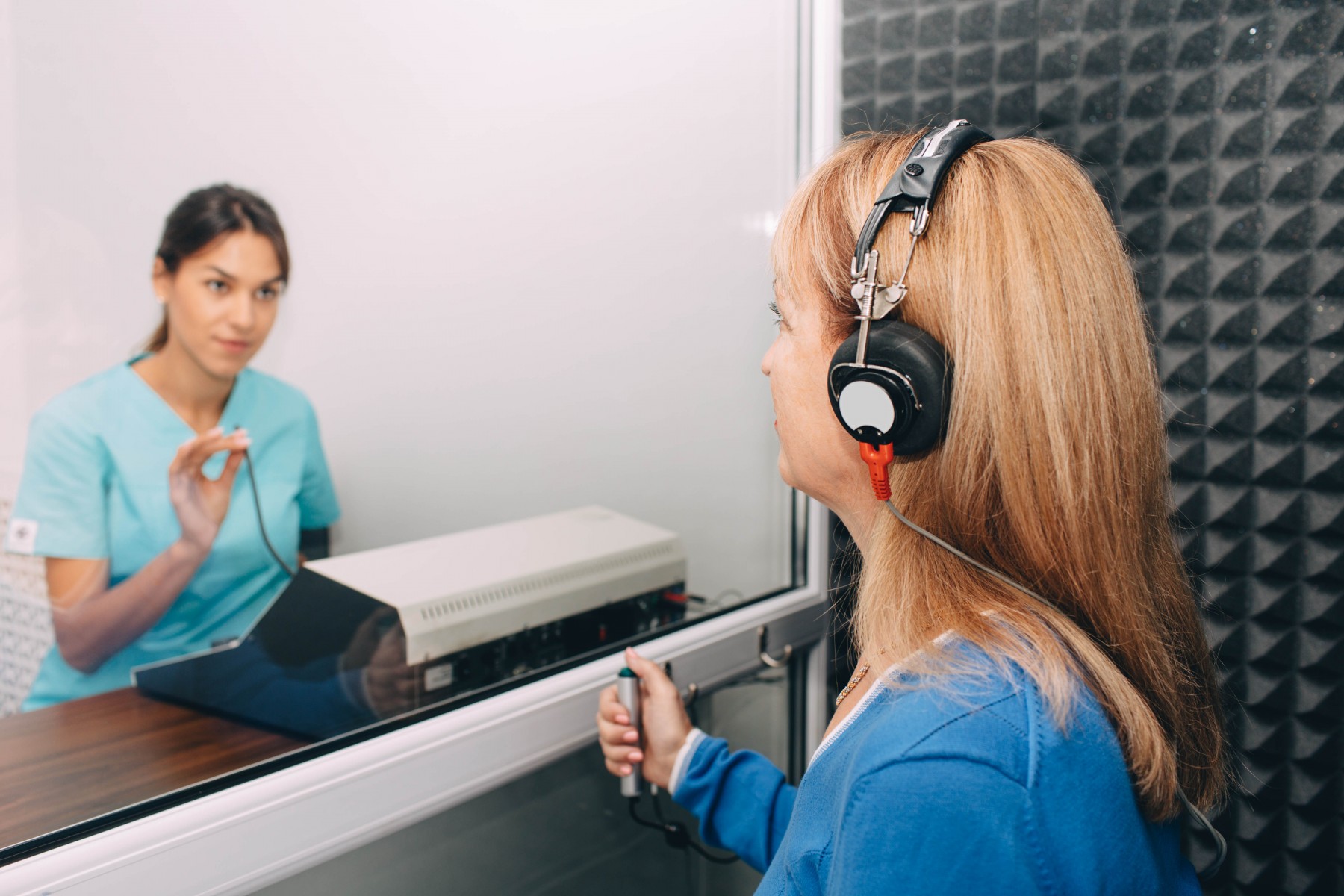Wait until you hear about tinnitus
May is better hearing and speech month

Do you ever get a loud ringing in your ears? What about a hissing or whooshing or clicking sound? Chances could be that you have tinnitus.
And you’re not alone. Many people have a ringing or another sound in their ears from time to time. But tinnitus (tin-NITE-us or TIN-ne-tus) can be both persistent and frustrating for people with a severe case of it.
“Anywhere between 10 to 20% of the population may have tinnitus at one time or another. Estimates of 50 million people in the country which is quite significant," says Dr. Chris Workman, an audiologist with OSF HealthCare. "For most of those people, it's not something that's significantly disabling. However, there is a percentage of population where it can cause significant issues.”
That includes having trouble sleeping or concentrating. Being alone in a quiet room can exasperate the situation. Dealing with tinnitus on a daily basis can make people feel angry, depressed and feeling irrational.
Tinnitus is a symptom, not a disease. It’s been linked to noise exposure, hearing loss, a side effect from taking certain medications at high doses and the aging process. (Hearing loss impacts one in three people over the age of 65.) An injury to the head or neck can damage the structures of the ear, and even ear wax or an ear infection can cause a blockage of the ear and trigger tinnitus.
Tinnitus can occur in one or both ears.
“Most of the time, we see it happen in both ears because it's gradual due to aging, noise exposure or some other health issues," says Dr. Workman. "Sometimes hypertension, cardiovascular health can play a role. So it may come on slowly and gradually and usually both ears. If it's one ear, I would definitely suggest having it checked out.”
There is no cure for tinnitus. But there are therapies and devices called sound generators which may help silence tinnitus, mask the sounds or help the patient get used to the noise or distract them.
“Some patients who have normal hearing may not need a hearing aid, so we might use that device as a tinnitus masker where it has different noises, whether it's a white noise or ocean-like noise, something else to focus on," says Dr. Workman. "We have fit patients with no hearing loss with a mild-gain hearing aid as a means to kind of drown it out. Sometimes just a little amplification is helpful to help the brain focus on the external noises around them.”
Because ongoing noise in your ears is annoying, Dr. Workman says anxiety will play a pivotal role in how a person handles tinnitus. He recommends that people find ways to reduce stress, which may help.
“Part of the key in minimizing the annoyance is reducing anxiety, educating them on the possible causes, and the fact that over time it may reduce the level of intensity," adds Dr. Workman. "It may not be a cure, but exercise and those types of things can help reduce overall stress levels, which will help minimize the annoyance of the ringing. It also may help them get better sleep, which in turn will help lead to less stress.”
Dr. Workman also suggests limiting the intake of caffeine, alcohol and cigarettes, which can increase tinnitus. Lifestyle issues such as exercise and diet are also important to cardiovascular health which also helps overall health, including hearing.
When it comes to your hearing, protection is the key. To minimize any type of damage, Dr. Workman recommends wearing earplugs whether it’s going to a rock concert or mowing the lawn. And if you use earbuds turn down the volume. If someone else can hear your music or podcast, it’s too loud.
For starters, people age 55 and over should schedule a hearing test to establish a baseline.
For more information, visit OSF HealthCare.

